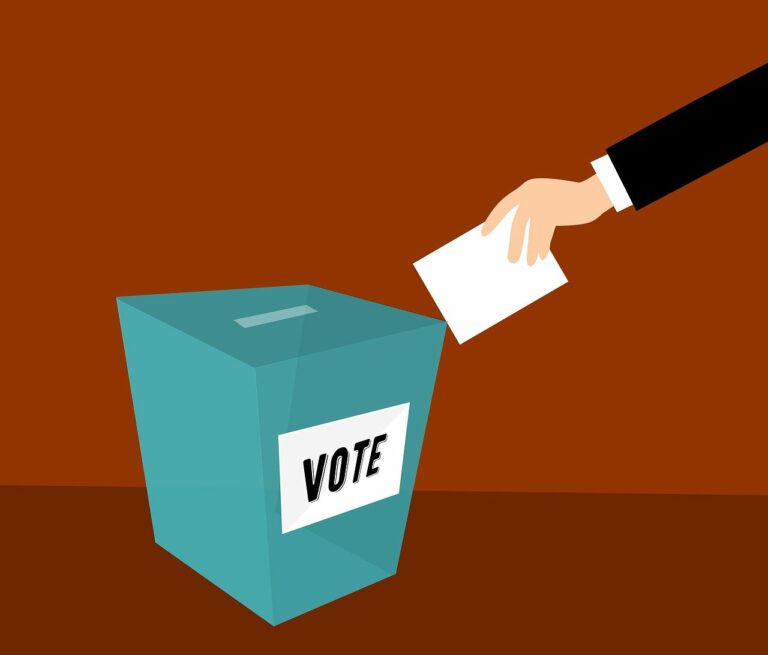Addressing Privacy Concerns in Election Management Software
allpaanel, laser247.com login, betbook247 login:Addressing Privacy Concerns in Election Management Software
In recent years, the use of technology in election management has become increasingly prevalent. From electronic voting machines to online voter registration systems, software solutions are being leveraged to streamline the election process and enhance voter participation. However, along with the benefits of these advancements come concerns about privacy and security.
As election management software continues to evolve, it is essential to address these privacy concerns to ensure the integrity of the electoral process. In this article, we will explore some of the key privacy issues associated with election management software and discuss strategies for mitigating these risks.
The Importance of Privacy in Election Management
Privacy is critical in the context of election management for several reasons. First and foremost, ensuring the confidentiality of voter information is essential for upholding the democratic process. When voters feel that their personal information is secure, they are more likely to participate in elections, thus strengthening the legitimacy of the results.
In addition to protecting voter information, maintaining privacy in election management is also crucial for safeguarding the integrity of the election process. By preventing unauthorized access to sensitive data, election officials can help prevent fraud and manipulation that could undermine the validity of election outcomes.
Privacy Concerns in Election Management Software
Several privacy concerns arise with the use of election management software. These include:
1. Data Breaches: One of the most significant risks associated with election management software is the potential for data breaches. If voter information is accessed by unauthorized parties, it could be used for malicious purposes such as identity theft or voter fraud.
2. Lack of Transparency: Some election management software systems lack transparency, making it challenging for voters and election officials to understand how their data is being used and protected. This can erode trust in the electoral process and raise concerns about the integrity of election results.
3. Insecure Communications: The transmission of voter information over unsecured channels can leave sensitive data vulnerable to interception by hackers. Without proper encryption protocols in place, communication between election officials and voters may be at risk of compromise.
Addressing Privacy Concerns in Election Management Software
To address these privacy concerns effectively, election officials and software developers must implement robust security measures and best practices. Some strategies for enhancing privacy in election management software include:
1. Encryption: Utilizing encryption techniques to protect voter information both at rest and in transit can help prevent unauthorized access to sensitive data.
2. Access Controls: Implementing strict access controls can limit the ability of individuals to view or modify voter information. By restricting access to authorized personnel only, election officials can reduce the risk of data breaches.
3. Transparency: Providing clear and concise information about how voter data is collected, stored, and used can enhance transparency and build trust with voters. Election officials should be proactive in communicating privacy policies and practices to the public.
4. Regular Audits: Conducting regular audits of election management software systems can help identify vulnerabilities and weaknesses that could compromise voter privacy. By regularly assessing the security of the software, election officials can take proactive steps to mitigate risks.
5. Training and Awareness: Educating election officials and staff about best practices for data privacy and security is essential for maintaining the integrity of election management systems. By raising awareness about potential risks and how to mitigate them, election officials can enhance privacy protections.
6. Collaboration with Experts: Working with cybersecurity experts and privacy professionals can provide valuable insights and guidance on implementing effective privacy measures in election management software. By partnering with knowledgeable professionals, election officials can leverage expertise to enhance security and privacy protections.
FAQs
Q: How can voters protect their privacy when using election management software?
A: Voters can protect their privacy by being cautious about the information they share online and ensuring that they are using secure and verified election management software platforms.
Q: What should election officials do in the event of a data breach?
A: In the event of a data breach, election officials should notify affected individuals promptly, conduct a thorough investigation to determine the cause of the breach, and take steps to mitigate any potential harm to voter privacy.
Q: How can election management software developers prioritize privacy in their products?
A: Election management software developers can prioritize privacy by incorporating robust security measures, conducting regular security audits, and ensuring that their products comply with relevant privacy regulations.
In conclusion, addressing privacy concerns in election management software is essential for safeguarding the integrity of the electoral process. By implementing robust security measures, enhancing transparency, and collaborating with experts, election officials can enhance privacy protections and build trust with voters. With a proactive approach to privacy, election management software can continue to evolve while maintaining the highest standards of data security.







